Soundproofer Ash Surrey (GU12): If noise is a problem in your property in Ash then it may be time to look into installing soundproofing to make your home office, lounge, studio or bedroom a peaceful haven from your neighbours and the outside world. In some instances you might be investigating soundproofing so you don't disturb others in the house from a children's room, music room or home cinema. Whatever your needs, soundproofing will provide you with peace of mind and sanity.
Before we can discover ways in which to combat sound pollution, it will help if we understand how sound travels.
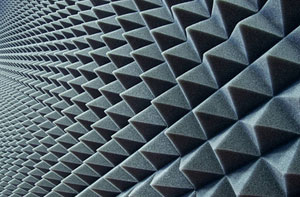
Sound can move in a couple of ways:
1. Through the air by vibration of air molecules.
2. Through objects by the vibration of the material.
As whale and dolphin songs can show, sound also penetrates long distance through water, but unless you wish to soundproof an aquarium or swimming pool we'll look only at the techniques of soundproofing rooms and structures.
SOUND TRAVELLING THROUGH THE AIR
Any ill fitted windows, gaps around doors, open air-ducting and even electrical sockets and light fittings can all be responsible for the transmission of sound outside or into a room. What we hear as sound is essentially air molucules being vibrated and reaching our ear drum. It doesn't matter if it's kids playing, music, traffic, passing aircraft or heavy machinery, they all create and transfer sound in the same manner.
It is helpful to visualise a room as a boat and inspect it carefully for leaks before sailing off into the sunset.
SOUND TRAVELLING THROUGH OBJECTS AND STRUCTURES
If sound moves through the air by vibrations, then it isn't surprising that those vibrations can be reflected by, absorbed by or transferred to various materials. The ceilings, walls and floors will all affect how sound travels around a room, and can even transport those vibrations to other rooms in a property. Even a solid concrete room, such as a cellar, can produce a path of resonance which transports any sound waves, and even amplify them, to other areas of a building.
However, how can these sound generating effects be stopped from causing a problem? The solution is naturally, soundproofing!
BASIC STEPS IN SOUNDPROOFING
If you have bare floorboards or floor surfaces, think about putting down a few rugs or cover with a carpet to help reduce any vibrations and sound reflections. The rugs or other soft coverings will help soak up noises but can also add a bit of elegance to a previously bare room. Hanging curtains and wall coverings can also prevent sound reflections and vibrations through windows and walls without the need to hire a professional team of soundproofers.
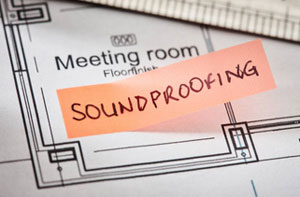
Look for areas in the room where noise can escape or come in; doors, light fittings, windows and electrical sockets, and seal the gaps or holes. It is possible to buy specialist acoustic sealants in some building supply stores which suppress the transmission of sound by suppressing it. There might be a little difference in the price compared to a regular sealant, but the soundproofing abilities are significantly better and will make an enormous difference to a room's soundproofing.
For anybody redecorating a room or renovating a property, look at the soundproofing benefits of adding an extra layer of plasterboard or soundboard, (also called gyproc, drywall or sheet rock), while you're carrying out the work. Plasterboard is a fairly dense material that's both economical and efficient in soundproofing a room. It is great if you're setting up a cinema room, home office or music studio in your house in Ash. It is wise to hire an experienced Ash tradesman to put up the plasterboard unless you're experienced in this task.
Lastly you should examine all doors in the room that you're soundproofing. If you have hollow doors in your rooms you'll discover that they can vibrate and will resonate any sound that hits them. If you're able to change to solid doors you'll discover that it enhances your room's soundproofing more cheaply than some other alternatives.
PROFESSIONAL SOUNDPROOFING ASH
If your home is in a high noise pollution area, such as next to a busy road or near an airport, you'll have to be more radical in your attempts to boost the soundproofing in your property. This is when the services of a specialist soundproofing installer will bring the most effective results.
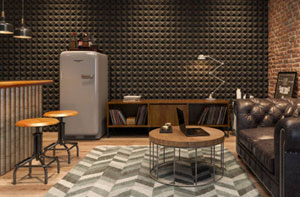
Be prepared to answer the following four questions during a survey of your specific soundproofing requirements:
- Is it external sounds or internal noise that you want to target? i.e. To lessen street noise, noisy neighbours or overflying aircraft, or is it from internally created sounds from a family room or music studio for instance.
- What is the space you want to soundproof constructed from? (i.e. a plasterboarded partition wall, a fully lined concrete wall or a brick wall).
- Where is the main source of sound emanating from? i.e. Above, through the ceiling, floors, walls, windows or doors, or a mixture.
- How big is the space requiring soundproofing?
Your answers to such queries will allow you to receive estimates for the various available solutions to suit your needs. There will be distinct solutions for each of the main key areas of the room you want to soundproof.
PROFESSIONAL SOUNDPROOFING OF CEILINGS, FLOORS and WALLS
There are 2 key areas that must be addressed to successfully soundproof any room:
- Reduce the ways that sound is transmitted through and reflected by hard surfaces.
- Maximise the absorption of sound.
A site survey is going to be necessary to examine the areas that need to be improved.
Solutions identified by the survey will probably include the addition of materials with different densities to help enhance the soundproofing characteristics of the space. Soundproofing can be boosted by the installation of acoustic foam, rubber and other materials which will absorb excess noise and improve and a room's sound quality.
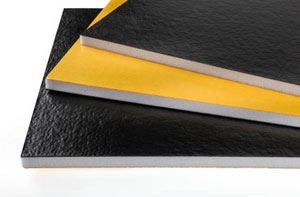
Any voids in the room might need some kind of deadening material to be placed between them to lower sound resonation. Wall cavities or flooring and ceiling voids can all be likened to a drum, where the space inside acts as an amplifying area for undesired noise.
Soundproofing abilities are enhanced if multiple layers of varying density materials are employed, rather than installing only one type of material. This is due to the fact that the different material densities react better with different frequencies and will deliver a much better overall solution to your soundproofing exploits.
Part E of the Building Regulations focus on the soundproofing of domestic properties, and must be adhered to by any installation company in Ash. These regulations have the purpose of protecting other residents in the immediate area from the effects of sound pollution.
Trade bodies in the soundproofing sector who offer advice, qualifications and training are the Institute of Acoustics (IOA) and the Association of Noise Consultants (ANC). Any Ash firm showing ANC or IOA accreditation will have been appraised to make sure they offer the highest reliability, quality and standards of work within the industry.
Where is it Available?
Soundproofing services are available in Ash and also nearby in: Wyke, Wanborough, Aldershot, Wood Street Village, Guildford, Normandy, Ash Green, Mytchett, Shackleford, Tongham, Compton, Puttenham, Farnborough, Fairlands, Worplesdon, Seale, Badshot Lea, Hurtmore, Ash Vale, and in these postcodes GU12 5BU, GU12 4UZ, GU12 5AY, GU12 4RH, GU12 5JB, GU12 5LX, GU12 5HR, GU11 2PX, GU12 5BY, and GU12 5LJ. Local Ash soundproofing specialists will most likely have the dialling code 01252 and the postcode GU12. Verifying this will make certain that you access local providers of soundproofing. Ash property owners will be able to benefit from these and lots of other comparable services. If you want to obtain a price quote for soundproofing services, you can easily do so by clicking on the "Quote" banner.
Acoustic Mineral Wool
Acoustic mineral wool really is a fantastic solution for enhancing soundproofing in both residential and commercial properties, owing to its effectiveness and versatility. This material is specifically crafted to absorb and block sound waves, which makes it ideal for cutting down on noise transmission between ceilings, walls, and floors. Whether you want to make your living space quieter, improve office privacy, or soundproof a home cinema or recording studio in Ash, acoustic mineral wool proves to be a dependable and practical option.
The key to acoustic mineral wool's effectiveness is its dense fibre composition. These fibres trap and absorb sound waves, stopping them from travelling through structures. This makes acoustic mineral wool great at reducing both airborne noise, like voices or music, and impact sounds, like footsteps on hard flooring. As a bonus, it's also fire-resistant, providing an extra layer of safety alongside its acoustic benefits. It's available in various thicknesses, and it can be easily installed in stud walls, between floor joists, or even behind suspended ceilings.
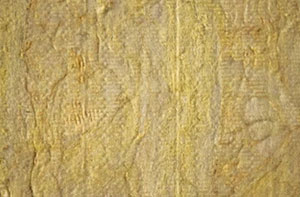
One of the most appealing things about acoustic mineral wool is its straightforward application. Unlike other soundproofing options that may require significant structural adjustments, you can easily integrate this material into your project with minimal disruption. Whether you're embarking on a new build or refurbishing a property in Ash, it's a simple yet remarkably effective solution for enhancing the comfort and functionality of your space.
Acoustic mineral wool is well known not only for its soundproofing qualities but also for its outstanding thermal insulation. It helps to keep your home at a comfortable temperature, contributing to better energy efficiency. This multifunctionality is why many people are choosing it when upgrading their properties, as it also brings the added perk of sound reduction.
So, acoustic mineral wool is a small investment that can have a big impact. By reducing noise transmission and improving insulation, it creates a more comfortable, private, and energy-efficient environment for work, rest, or play in Ash homes, buildings and commercial premises. (Tags: Acoustic Mineral Wool).
Isosonic Acoustic Hangers
Reducing noise transmission in homes and buildings in Ash is achieved through the use of isosonic acoustic hangers. These hangers are created to isolate floors and ceilings, preventing sound from moving between different sections of a building. By installing these hangers, the acoustic performance of a room can be greatly improved, creating a quieter and more pleasant space.

These isosonic hangers work by using resilient materials to suspend floors or ceilings, which dampen and absorb sound vibrations. In environments where noise reduction is vital, such as cinemas, recording studios, or in residential blocks with stringent soundproofing needs, this proves especially useful. By creating a barrier, the hangers prevent sound waves from penetrating ceilings, floors and walls.
While the installation of isosonic acoustic hangers is relatively simple, a basic understanding of building structures is essential. Typically, the hangers are secured to the floor beams or ceiling joists, and the ceiling or floor is subsequently attached to them. This setup enables the suspended surface to float independently of the main structure of the building, reducing the transmission of impact and airborne noise.
Isosonic hangers can make a substantial difference to the sound quality in a building. These hangers can effectively control the level of noise and create a more serene environment, whether you are updating an existing space or starting from scratch. For anyone in Ash who is aiming to enhance the acoustic performance of their home or property, they're a valuable investment. (Isosonic Hangers Ash)
Mass Loaded Vinyl
MLV, or mass loaded vinyl, is a noise-blocking material that is employed for soundproofing purposes. A mix of vinyl and heavy materials like calcium carbonate and barium suphate creates the high density of MLV. MLV's high density assists in preventing sound waves from passing through walls, ceilings, or floors.
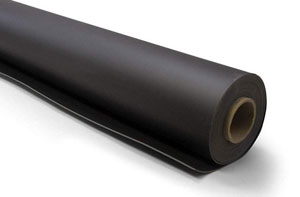
A key benefit of this material is its flexibility. Unlike rigid soundproofing materials, MLV's flexibility allows it to be shaped and bent around various surfaces, making it just the ticket for tight or awkward spaces. It is regularly installed in homes, offices, and vehicles to reduce unwanted noise.
MLV works by increasing the mass of a surface, thereby reducing sound transmission. The more mass there is, the less sound can penetrate. Incorporating mass loaded vinyl in walls or floors can lead to a substantial reduction in noise from neighbouring rooms or external sources.
As a soundproofing material, mass loaded vinyl is both versatile and highly effective. It comes in rolls and can be trimmed to the desired dimensions, facilitating easy installation for both professionals and DIYers. Though it may be slightly more expensive than other soundproofing materials, its enhanced performance, particularly in noisy areas, makes it a worthwhile investment.....READ MORE (Mass Loaded Vinyl Ash)
Sound Absorption Solutions Ash
Sound absorption solutions are extremely useful for making working and living spaces in Ash quieter and more comfortable. These solutions help reduce unwanted noise by absorbing sound waves, preventing them from bouncing around a room. Materials typically used for sound absorption include acoustic panels, carpets and foam. In offices, homes and studios in Ash, these materials are often utilised to enhance sound quality and minimise echoes.
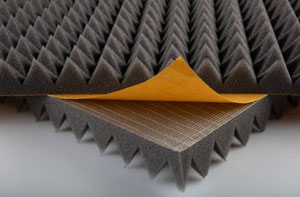
It is fairly straightforward to install sound absorption solutions. Ceilings and walls can be fitted with acoustic panels, while carpets and rugs on floors help to muffle noise. Foam panels are frequently used for wall lining, especially in recording studios and home theatres in Ash. By reducing noise and improving the overall acoustics, these solutions make a space more agreeable to be in.
An investment in sound absorption solutions improves both your health and your comfort. As it is distracting and stressful, too much noise can negatively impact productivity and well-being. By implementing such solutions, you create a more serene environment, ideal for working, relaxing, or enjoying entertainment. Whether you're aiming to quieten a noisy office or enhance your home audio setup, sound absorption solutions are a practical and effective choice. (Sound Absorption Solutions Ash)
Noisy Neighbour Soundproofing
 It can be a complete nightmare living adjacent to a neighbour who is noisy. Constant noise like never-ending parties, barking dogs or loud music can immediately disrupt your peace and affect your quality of life. Soundproofing is a solution that can be considered for this issue. The incorporation of materials into ceilings, floors and walls is essential in achieving soundproofing, which aims to block or absorb sound. Soundproofing is typically done using materials such as soundproof curtains, acoustic foam and mass-loaded vinyl. You can also add sound insulation to your walls or opt for double glazing to reduce outside noise. People who are renting could find soundproofing to be a time-consuming and costly process that may not always be feasible. Consequently, it's necessary to engage in a conversation with your neighbour to find a solution that works for both parties. Should you be unable to find a resolution with your neighbour, seeking help from local authorities or legal experts can be an effective way of addressing the noise issue. To sum up, having a noisy neighbour can be a trying experience, but there are various ways to deal with the problem, such as soundproofing, insulation, communication, and legal recourse, all while putting your well-being first and seeking assistance from professionals if required.
It can be a complete nightmare living adjacent to a neighbour who is noisy. Constant noise like never-ending parties, barking dogs or loud music can immediately disrupt your peace and affect your quality of life. Soundproofing is a solution that can be considered for this issue. The incorporation of materials into ceilings, floors and walls is essential in achieving soundproofing, which aims to block or absorb sound. Soundproofing is typically done using materials such as soundproof curtains, acoustic foam and mass-loaded vinyl. You can also add sound insulation to your walls or opt for double glazing to reduce outside noise. People who are renting could find soundproofing to be a time-consuming and costly process that may not always be feasible. Consequently, it's necessary to engage in a conversation with your neighbour to find a solution that works for both parties. Should you be unable to find a resolution with your neighbour, seeking help from local authorities or legal experts can be an effective way of addressing the noise issue. To sum up, having a noisy neighbour can be a trying experience, but there are various ways to deal with the problem, such as soundproofing, insulation, communication, and legal recourse, all while putting your well-being first and seeking assistance from professionals if required.
Acoustic Glazing Ash
Designed to reduce external noise pollution, acoustic glazing, also termed soundproof glazing, is a kind of specialised window. In busy urban areas and near noisy locations like train stations or airports, this type of glazing is especially useful. Limiting the amount of external noise entering a building in Ash is the primary goal, aiming to create a more comfortable and quieter inside space.
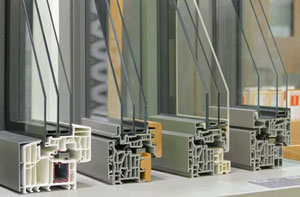
This type of glazing often consists of multiple layers of glass featuring a unique acoustic interlayer. A plastic resin-based material that can dampen sound waves is what the interlayer is usually made with. With its multi-layered approach, this glazing substantially cuts down on noise that passes through, making it significantly better than standard double or single glazing. Both the distance between the glass panes and the thickness of the glass can be modified to boost the noise-cancelling effect.
While reducing noise is its main purpose, acoustic glazing offers a broad spectrum of other perks. It helps enhance thermal insulation, keeping Ash homes and businesses warmer during winter and cooler in the summer months. With its multi-layered construction making it harder to break, it also provides better security. In short, for those seeking a quieter and calmer atmosphere, acoustic glazing is an effective solution to improve their living or working environments in Ash. (Acoustic Glazing Ash)
Soundproofing Foam Ash
Just recently I thought I would look at what householders in Ash are searching for online with regards to soundproofing, and evidently when searching on Google and Bing one of the most commonly types in requests is "soundproofing foam". And from a local point of view enquiries include things like "soundproofing foam Ash". That is actually quite worrying, because it would suggest that Ash householders are assuming that soundproofing foam is a suitable product for resolving their noise pollution issues.
I don't wish to ruin your day, but soundproofing foam isn't the answer to most noise pollution issues, and is definitely not effective if you are hoping to eliminate the racket from your noisy next door neighbours in Ash.
Often sold in tile or sheet form, this "egg box" style foam that you often see on sale is not really designed for stopping the transmission of noise, but is really meant to be used in music studios and similar situations, to improve the acoustic performance of a room, and reduce amplifying and echoing. Acoustic foam of this sort isn't good at stopping noise from moving around your house, or stopping sound from passing through a neighbours wall. Given that it's porous, soundproofing foam absorbs sound and permits sound to pass through, rather than stopping it.
It may be that you're actually creating a music studio in your home in Ash, in which instance this product may be extremely useful for you. (Tags: Soundproof Foam Ash, Soundproofing Foam Ash, Acoustical Foam Ash, Acoustic Foam Ash).
Soundproofing Curtains
Are you feeling overwhelmed by the continuous noise from traffic, the disturbances from your neighbours, or the early morning songs of birds? Soundproof curtains could be the solution you've been searching for. These aren't your typical curtains - they're made with thick, dense fabric that helps to block out unwanted noise and lessen echoes within your room. While they won't make your place soundproof like a recording studio, they'll certainly help in creating a more peaceful and quiet setting.

What's wonderful about soundproof curtains is how incredibly easy they are to use. Forget about drilling holes or complex installations - just hang them on your curtain pole, and you're good to go! Many options also provide thermal insulation, which means you're not only keeping the noise at bay but also retaining heat, a nice advantage for those frosty evenings in Ash. And don't worry about aesthetics; they come in a range of styles and colours, allowing you to keep your home looking lovely while enjoying some peace and quiet.
Soundproof curtains can be a fantastic addition to bedrooms, home offices, or living rooms if you want to drown out street noise while binge-watching your favourite series. They're an affordable way to combat everyday noise without emptying your wallet or going through major renovations. So, if you fancy a quieter atmosphere in your home in Ash, it's worth having a look at soundproof curtains. (30159 - Soundproof Curtains Ash).
Local Soundproofing Enquiries

Current soundproofing enquiries: Benjamin and Courtney Grant from Compton were searching for somebody who could soundproof their home theatre. Taylor Wilson recently enquired about doing some soundproofing on a music studio in a detached house in Wood Street Village. Alyssa Thompson in Hurtmore asked "are there any experienced soundproofers near me?". Cody Campbell was trying to find soundproofing installers near Hurtmore. Samuel Walsh from Shackleford asked the question "is there someone who does soundproofing near me?". Heather Young recently enquired about getting a price for soundproofing a converted loft space in a detached house in Farnborough. Mr and Mrs Phillips recently enquired about the possibility of improving the soundproofing on a party wall in Tongham. Mr and Mrs Bradley recently enquired about the possibility of soundproofing a property in Wyke. Nicole Lock recently requested an estimate for soundproofing a kid's play room in a terraced house in Guildford. Katherine White in Normandy asked "are there any experienced soundproofers near me?". Patrick Reynolds was trying to find soundproofing installers near Fairlands. Brianna Cook recently requested an estimate for soundproofing a kid's play room in a terraced house in Aldershot. Haley Bradley recently enquired about getting a price for soundproofing a converted loft space in a detached house in Worplesdon.
Soundproofing Near Ash
Also find: Ash Green soundproofing, Guildford soundproofing, Normandy soundproofing, Badshot Lea soundproofing, Farnborough soundproofing, Mytchett soundproofing, Hurtmore soundproofing, Tongham soundproofing, Ash Vale soundproofing, Wyke soundproofing, Fairlands soundproofing, Shackleford soundproofing, Compton soundproofing, Puttenham soundproofing, Wood Street Village soundproofing, Seale soundproofing, Aldershot soundproofing, Wanborough soundproofing, Worplesdon soundproofing and more. There are firms who do soundproofing in all of these places. In soundproofing your home, these skilled professionals bring to the table a wealth of expertise and know-how, ensuring high-quality results. The principal aim is to effectively lessen noise pollution, thereby ensuring a quieter and more tranquil living space for occupants. By going here, local property owners can get soundproofing quotes.
Ash Soundproofing Tasks

There is a variety of work that can be conducted by your local Ash soundproofing company including ceiling soundproofing, soundboard installation in Ash, soundproofing services, soundproofing advice in Ash, soundproofing plasterboard installation in Ash, soundproofing surveys, sound insulation testing in Ash, noisy neighbour soundproofing, acoustic panels, under floor hanger systems, door soundproofing, acoustic fencing, soundproofing, noise control, soundproofing consultations, secondary glazing, underfloor soundplank installation in Ash, acoustic foam installation, soundproof curtains, party wall soundproofing, window soundproofing, acoustic membranes, batten wall systems, acoustic mineral wool installations, soundproofing walls, echo reducing, music studio soundproofing, machinery & plant noise testing, basement soundproofing in Ash, soundproofing walls from noisy neighbours, and lots more. Listed are just a few of the tasks that are performed by those installing soundproofing. Ash professionals will let you know their full range of soundproofing services.

Other Tradespeople in Ash: Home improvements in Ash often require the expertise of various different tradesmen, and SKIP HIRE in Ash, a double glazing fitter in Ash, a handyman in Ash, a painter/decorator in Ash, driveway cleaning in Ash, a security expert in Ash, an interior designer in Ash, a building contractor in Ash, a carpenter/joiner in Ash, an electrician in Ash, partition walling in Ash, a flooring specialist in Ash, home insulation in Ash could be required even though you are currently looking for soundproofing in Ash. Click on the links to get quotes for all types of home improvement project.
More: Soundproofing Experts, Soundproof Rooms, Noise Reduction Services, Noise Elimination, Noise Reduction Services, Noise Control Services, Noise Muffling, Soundproofers, Soundproofing Experts, Noise Prevention, Soundproofing Solutions, Noise Prevention, Soundproofing Specialists, Soundproof Rooms, Sound Muffling, Noise Elimination, Soundproofing Services, Soundproofing Experts, Soundproof Rooms, Soundproofers, Sound Muffling, Soundproofing Companies, Noise Control, Acoustic Solutions, Cheap Soundproofing, Soundproofing Experts, Soundproofing Services, Sound Insulation, Sound Muffling, Noise Control.
Ceiling Soundproofing Ash - Soundproofing Services Ash - Floor Soundproofing Services Ash - Noise Reduction Services Ash - Soundproofing Companies Ash - Home Soundproofing Ash - Soundproofing Estimates Ash - Soundproofing Near Me - Soundproofers Ash


